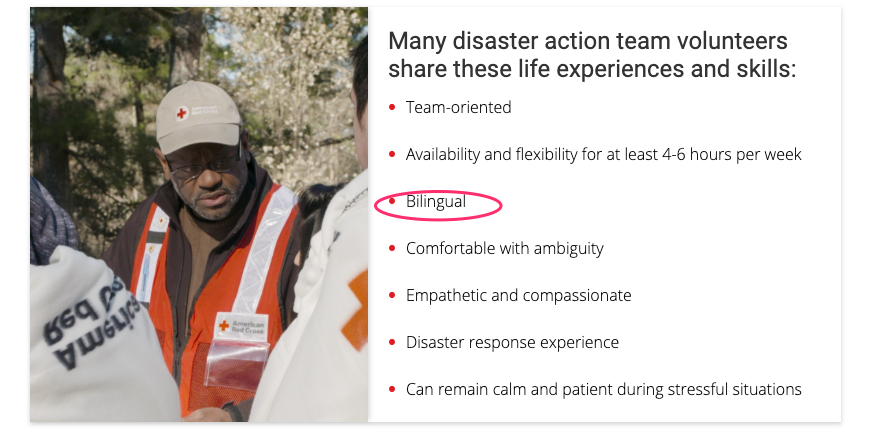If you asked me about the most frequent dilemma questions I get/see in professional interactions, including teacher development communities, workshops, social media, and email, this would have to be way up there:
What am I supposed to do about this PBL thing?
Rewind please…
You probably know this, but for clarity’s sake, let’s do a bit of history.
I’m not sure where Project-Based Learning (PBL) came from, but the “Gold Standard” for the concept is defined by PBLWorks, which used to be known as the Buck Institute for Education. Here’s their definition:
Project Based Learning is a teaching method in which students gain knowledge and skills by working for an extended period of time to investigate and respond to an authentic, engaging, and complex question, problem, or challenge.
PBL has been part of an overall revolution in education, one that has been pushing educators to abandon the Industrial Age model of education where students in rows memorize things we pour into their heads. It asks for teachers and students to take the point of view that young people are preparing for a world that is changing so fast they can’t even imagine what their grown-up lives will look like – or maybe even what planet they will be on. That everyone is walking around with access to more stored knowledge than can even be measured, and rote memorization of lists and facts is of little value in general education now. That the future belongs to those who can identify and solve problems. (I wish this had been the perspective of the college history professor who made me memorize the kings and queens of England, in order, by family. Which “knowledge” I no longer have in my head, but can access anytime I want. But I don’t.)
You can see why administrators are head-over-heels in love with this concept. Of course they want to develop the future’s problem-solvers! And in their eagerness, they’ve passed along PBL initiatives and requirements across grade levels and subjects – including world language.
But there’s a huge problem with asking world language educators to implement PBL in the same way other subjects do, and to me, that’s in a couple of words in PBLWorks’s definition: “respond” and “complex.” We simply cannot expect our learners to respond as fast or in the same way as those in the history class down the hall, and adding complexity is no one’s success formula for the first years of language learning.
Enter PBLL
Project-Based Learning can’t look the same in French class as it does in Physics class. For reasons similar to those I wrote about in my analysis of the Genius Hour movement, for a long time I scoffed at the idea of implementing PBL in the first few years of world language class- which represent the years the vast majority of us are teaching. However, as time went by, as often happens with me, I understood that I was accepting an all-or-nothing approach, and I know better! There are ways to successfully incorporate project-based learning at all levels of language class, and that approach is known as PBLL: Project-Based Language Learning.
I really must direct you a few places to explore this concept more, starting with, of course, Laura Sexton at PBLintheTL; explore her “projects” tag here. For helping me figure out how to adapt PBL for the early days of language learning, I credit Meriwynn Mansori and VIF (now Participate). Then, I credit the National Foreign Language Research Center (NFLRC) at the University of Hawai’i for helping me really understand what quality PBLL should look like. If you really want to dig in deep in what gold-standard PBLL looks like, I highly recommend their online institute in February. I would have loved to follow up with their on-site (Hawai’i, people!) intensive in the summer, but the project I’d planned to fund it fell through so I couldn’t afford to get there. They don’t stop there – this summer, they did an institute in Minnesota, so check their events page to see what’s coming next.
Ingredients & tips
Before we get to the project ideas, let’s run through some ingredients and tips I’ve learned are keys in quality PBLL.
- Authenticity: For it to be true PBLL, there must be a product that reaches an authentic audience.
- A problem: If your learners are making a product that goes to an authentic audience but doesn’t actually meet any need or solve any problem, it isn’t meeting the standard for PBLL. Could be a good project, just not technically PBLL.
- A longer unit length: In the PBL world it’s common to see projects that take 2 weeks or less, especially since one of the keys in gold-standard PBL is to hold student interest. I believe with language learners, especially in the novice and intermediate low realms, it’s going to take longer to develop the needed language and produce a project. This means…
- A longer “investigative” period: Geometry students can investigate the facts and issues surrounding a problem in a matter of a few hours, even minutes sometimes. Language learners have to develop the language they need for a project while investigating it, so this investigative period turns into the input. As we know, developing long-term language skill requires a lot of input, which means it’s perfectly okay to have a long period of exploring the topic with all kinds of input before you enter the problem-solving phase.
- A much simpler project: A team at a school I worked at developed a product they sent to the city traffic planning commission proposing and supporting a suggestion to put a right-turn lane on a street near our school. Needless to say, this isn’t going to happen in Spanish class. You’ll note that some of the projects below consist of very little actual language. That’s fine. The point is that we experienced a whole lot of comprehensible input and often cultural inquiry as we explored the topic, and they developed language they’ll be able to use across different contexts, even if that didn’t show up on the project itself.
- A sporadic PBLL approach: In order to implement PBLL, you don’t have to launch full on into an “I am a PBLL teacher.” You’re not “failing” here if you don’t have a quality project at the end of every unit you do. In fact, if you just do one or two projects like the ones listed below per year, I think you can pretty safely say you’re a teacher who implements PBLL. I don’t think I have the creativity or stamina to come up with a gold-standard project for every unit, much less implement it!
And you said projects?
This is why you clicked the post, right? Even in the NFLRC’s online institute, what you’ll generally encounter with people in PBLL is one of a few scenarios:
- College professors who can push their students farther, faster
- Upper-level teachers
- People who trade a whole lot of TL time for complexity in English while calling it PBLL
In this post, I wanted to provide ten examples of projects that you could really develop to meet the gold standard but could be implemented at the earlier levels of language. Some of these ideas I’ve implemented, some I’ve seen implemented, and some are just ideas. Without further ado, let’s go, by my suggested proficiency level.
Novice Mid
1. School lunch menu
- Problem: Newcomers who speak the TL don’t understand the lunch menu.
- Driving question: What can we create to help the school / district communicate lunch options in the TL?
- Best for: Schools or districts with large TL-speaking communities, like the one I live in. We have a lot of Spanish speakers but also a lot of French thanks to francophone African refugee resettlement in our area. So, also a lot of Arabic, Swahili, Nepali, and more, though not so much German, Chinese, Japanese, or other languages not represented much in refugee communities.
2. Welcome to our school
- Problem: TL speakers need to know more about the school and the people in it.
- Driving question: What can we create to help TL-speaking families, visitors, and new students know more about our school? (A video introducing people and area? “This is the library. This is Ms. Wilson. She is the librarian.”)
- Best for: Schools hosting an exchange group or in an area where TL-speaking students/families frequently enter the school system.
3. Social media campaign
- Problem: TL speakers need to be more aware of (insert issue of interest here) – the benefits of learning language? The rules for safety at a beach? The effects of trash in the waterways?
- Driving question: What can we create to help TL speakers in (place) be more aware of (issue of interest)? Simplify the issue without eliminating the actual need, and you’ll be surprised what learners can do. Investigate what hashtags will get the most coverage on social media; Twitter posts can be particularly comprehensible at low levels because of the limited language.
- Best for: Learners interested in connecting common themes – clothes, activities, food, family, etc. – with activism for social and environmental issues.
Novice High
4. Travel reviews
- Problem: TL-speaking visitors to your area don’t have real (non-translated) reviews in their language.
- Driving question: How can we help visitors to our area know about our favorite (restaurants, parks, etc.)?
- Best for: Schools in areas that receive a lot of tourism.
5. Advocating for fair trade
- Problem: People (many who come from areas where growers are exploited in the chocolate and coffee industries in particular) aren’t aware of how their purchases can affect those growers’ quality of life.
- Driving question: What can we create to advocate for fair trade buying habits among the TL-speaking community?
- Best for: Spanish classes. (Mine created a poster for local coffee shops as well as a social media image – see it below!)

6. 48 hours in…
- Problem: TL-speaking visitors who don’t have a lot of time in our city may not find the best places to visit.
- Driving question: What can we create to showcase the best places in our city for TL-speaking people who only have a little time to spend here?
- Best for: Anywhere, but especially areas that receive a lot of visitors, for whatever reason – our city draws a lot of tourism for horses, bourbon, and baseball, but also a lot of corporate visitors who want to see the area, thanks to the likes of Toyota and UPS. If your Spanish class wants to see what other classes have done and join our project, check out 48horasen.com.
Intermediate
7. Red Cross skills
- Problem: When disaster strikes, many people on aid teams don’t speak the languages represented in affected communities.
- Driving question: How can we help the Red Cross serve our TL-speaking community in a disaster?
- Best for: Areas susceptible to natural disasters that also have TL-speaking communities. Fill your investigative period with exploring what natural disasters hit your TL-speaking cultures and how they respond – Facebook and other social media pages / groups are really helpful here. Then, put learners in groups as they investigate how to develop the skills needed to be on a Red Cross Disaster Action Team.

8. Medical care information
- Problem: The American healthcare system is complex and difficult to navigate for newcomers and people who don’t speak English well. Many places offer translation services for a broad range of languages thanks to phone services, but how do you know where to go? What can you expect as far as wait times, care, and cost?
- Driving question: What can we create to help the local TL-speaking community understand local healthcare options and know what to expect from a medical visit?
- Best for: Communities with TL-speaking populations who could benefit from better understanding the healthcare system. I’ve done this twice and found that my mostly middle-class and upper-middle-class learners often didn’t know what a sliding scale was, didn’t know what services were offered at the health department, didn’t know how to find a low-cost clinic, didn’t know the difference in price between an insured patient and a walk-in, didn’t know the difference in price and services between an urgent care center and an emergency room. This makes a hugely practical unit and adapts well- future classes can add to what’s already been done, or can create (e.g. a pamphlet) specific to dental or vision or pharmacies. Whatever the product is, consider sharing it with local agencies who have contact with the TL community. For us, the local Catholic archdiocese is a great outlet for dispersing helpful information to the Spanish-speaking community.
9. TL Storytime
- Problem: Storytime is fun for all – as long as you speak English. What about children from immigrant families who speak other languages?
- Driving question: How can we provide a storytime in the target language at the local library?
- Best for: Areas with a library that knows TL-speaking children will come. In our library system, one library in particular serves an area with many Spanish-speaking children and actually offers a Spanish-language storytime once a month. Call and ask if your learners can take over one! Learners can come up with an original story or develop a classic. They should brainstorm what language they might hear in the children’s responses, and consider leaving some details open-ended for children to respond and provide to make the event more interactive. Consider recording the story and pairing the recording with a soft blanket and/or stuffed animal for a local crisis response center. Your learners’ story could help a child calm down in a difficult situation!
10. Zoo / museum tour
- Problem: TL speakers (resident and visiting) don’t benefit from the English-language signs and audio at the zoo, museum, or other local attraction.
- Driving question: How can we help TL-speaking visitors to (local attraction we love) get the most out of their visit?
- Best for: Areas with an attraction that draws a lot of visitors. Your learners could record MP3s to offer to the organization. They could plan where the organization could put numbers specific to a track in order for the listener to hear something in their language about what they’re seeing in that moment!
This list is by no means exhaustive and it’s by no means fail-proof. But I hope that in reading through my thoughts in putting together the preliminary ideas for a PBLL unit you can see that kids who are in their first years of learning a language can solve a real-world problem with real-world language.
What projects have you done successfully? What would you recommend to someone contemplating their first PBLL unit?




I’d recommend checking out some projects I’ve tried! http://www.pblinthetl.com/projects
Also, the design cycle is a good place to start developing a unit, I think.
Thanks for posting your link – SUPER useful!
[…] have already saved Sara-Elizabeth’s post on how to make some PBL projects and my head is spinning on which one to try […]